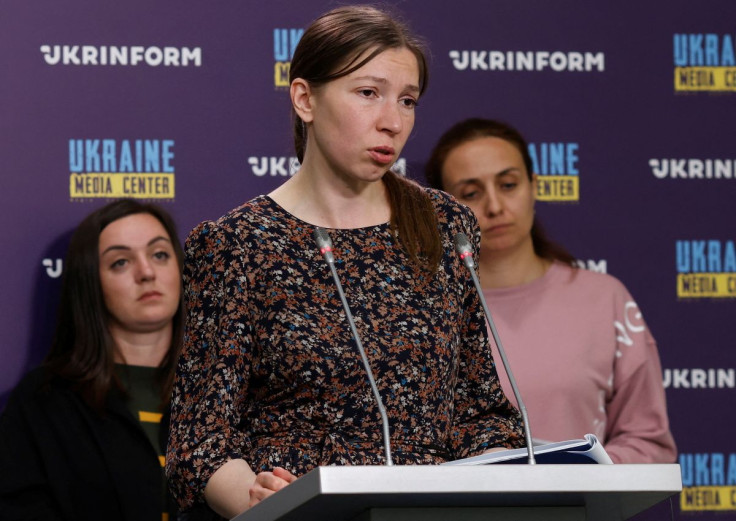Relatives Of Ukraine's Evacuated Azovstal Fighters Seek News

Relatives of Ukrainian fighters who remained for weeks under the besieged Azovstal steel works said on Monday they had received no news of the whereabouts of their loved ones since they were evacuated to Russian-controlled areas of Ukraine.
Uncertainty surrounds the fate of hundreds of fighters, most from the Azov battalion, taken into Russian custody in mid-May after essentially being ordered to give themselves up as Russian forces pounded the plant and the nearby city of Mariupol in southern Ukraine.
The relatives, all women, said they had formed a Council of Wives and Mothers, to ensure the fighters were treated in accordance with the Geneva Convention on prisoners of war.
"We were asked to stay silent in order not to make things worse," Tetyana Horko, sister of marine commander Serhiy Horko, told a news conference.
"But one mustn't think that the story of Azovstal heroes is over. They need support, they need to be brought back home."
Sandra Krotevich, sister of the Azov regiment's first deputy commander, Bohdan Krotevich, said relatives had no idea what was happening to the detained fighters.
"Where they are, what's happening to them, in what condition they are, we do not know," Krotevich said.
"We very much expect Russia to treat them in accordance with the Geneva Convention, in accordance with the international law just like Ukraine treats the Russian POWs."
Natalia Zarytska, wife of an Azov regiment soldier, said she had been contacted by the International Committee of the Red Cross (ICRC), which helped oversee the mass evacuations.
"I was informed that it has been registered that he left the Azovstal plant but none of my questions - whether he is still alive, what condition he is in, where they have been taken - have been answered," Zarytska said.
She said she saw little evidence of any activity by the ICRC, but added she would like its representatives to be present with the men "to make sure the Geneva Conventions are observed".
Ukrainian authorities have said they expect the fighters to be part of an exchange with Ukrainian prisoners of war.
Some Russian politicians have suggested the Azov fighters, part of a right-wing militia before being folded into the Ukrainian National Guard in 2014, should be put on trial.
The fighters had vowed never to surrender to Russian forces, who pounded the plant and the networks of tunnels beneath it, but authorities essentially told them to give themselves up, saying their mission defending Ukraine was complete. Hundreds of civilians had been holed up underground alongside them.
© Copyright Thomson Reuters 2024. All rights reserved.





















